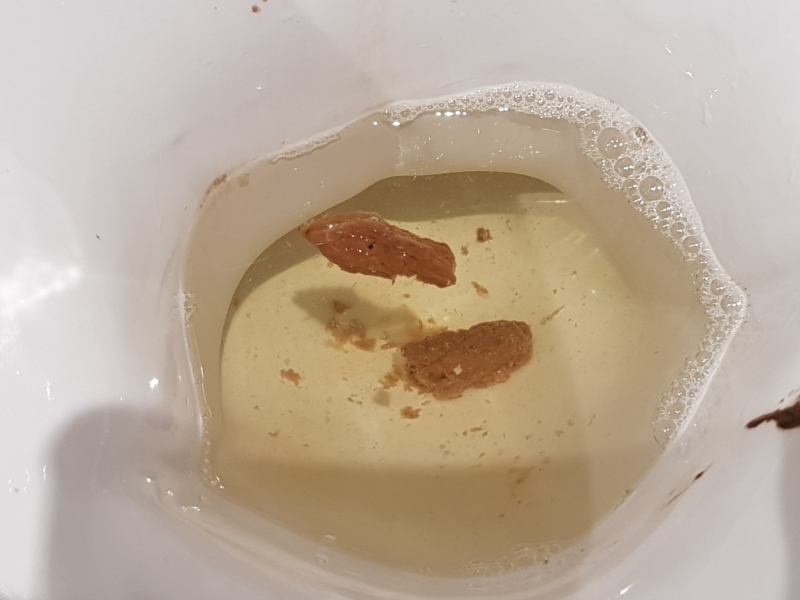

This poop has little to no visible segmentation, but is not considered to be an alarming sign. If your cat's poop is moist on the surface, thus leaving residue on the ground, but retains the shape and form when picked up, then its consistency can be scored with 3. Soft, mushy or liquid stools (scores 3-7) can be a sign of bacterial infections, intestinal parasites, or food intolerance. The hard poop is passed in smaller, more spherical pellets which leave no residue on the ground, and the passing itself requires more effort. Thus, if you notice that your cat is passing poop that is too hard in consistency, you should pay a visit to the vet and address the issue. Hard stool (score 1) is typically a sign of constipation, which can be associated with dehydration, colon obstruction or certain metabolic and neurological conditions. Scores from 3 to 7 are reserved for moist, mushy or liquid stools.

The healthy stool (as described above) is scored with 2, while the stool that is too hard and dry is scored with 1. According to Purina's guide, the consistency of the healthy stool can be scored on the scale from 1 to 7. The consistency of the stool can be descriptively scored to help you recognize if your cat's stool is healthy.Ī comprehensive fecal scoring guide was described by Purina. The colon (or the large intestine) reabsorbs the remaining water and other key nutrients from the indigestible material, thus solidifying this material into the firm stool.

The stool's consistency is directly influenced by the amount of moisture in it, which gives you an insight into the colonic health. The key signs to look out for in your cat's poop are the consistency, shape and color. The odor shouldn't be too foul, although this can be variable. Poop should be passed in one piece or a few smaller pieces of somewhat cylindrical shape and segmented appearance. Healthy cat poop should be deep brown in color (but not too dark nor black) and malleable in consistency (similar to modeling clay it should be firm enough to leave little to no residue on the ground when picked up, yet pliable and not too hard). If your cat's bowel movements start to differ from the normal frequency for longer than a day or two, it is advisable to pay a visit to the vet and resolve the cause of the change. IBD, hyperthyroidism, parasites, CKD).īecause of this, the exact frequency of the bowel movement will be individual, and you should monitor for its fluctuations instead. kittens defecate more often than adults), diet, exercise, and health status (i.e. However, the frequency of your cat's bowel movements is affected by multiple factors including the age (i.e. The general rule of thumb is that a cat should poop at least once a day. Healthy Poop in Cats How often should a cat 'go'?


 0 kommentar(er)
0 kommentar(er)
